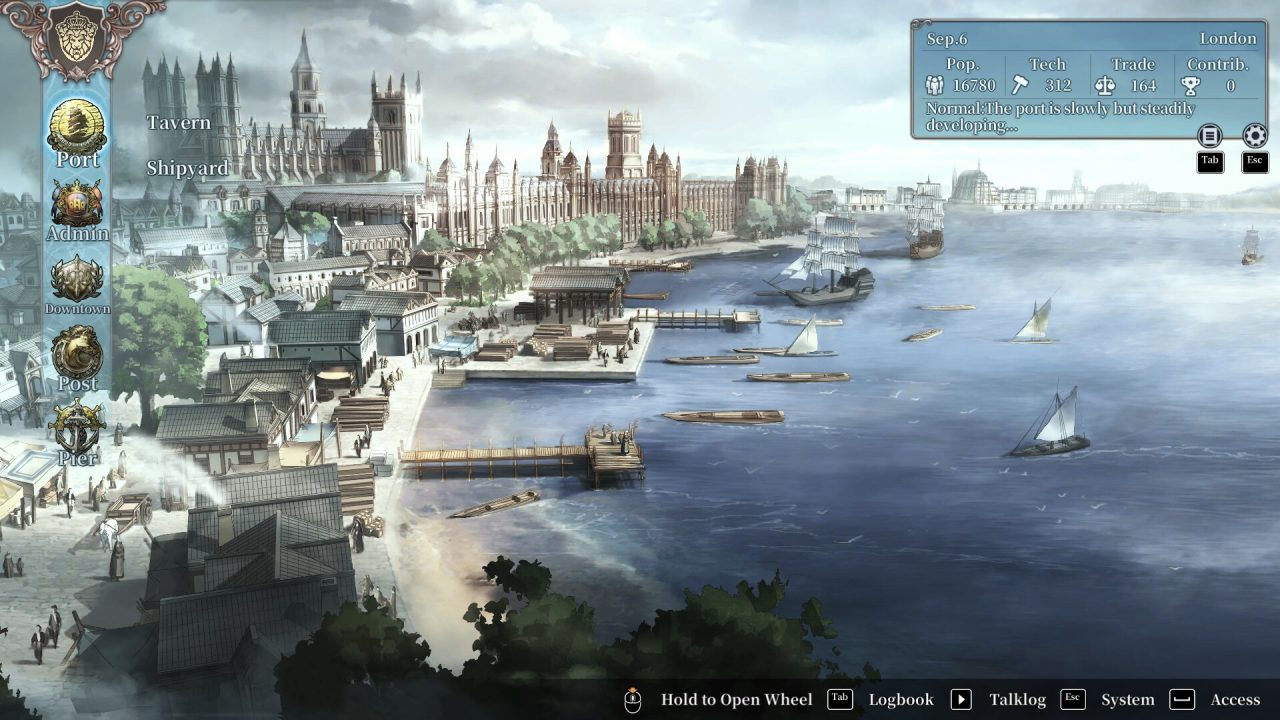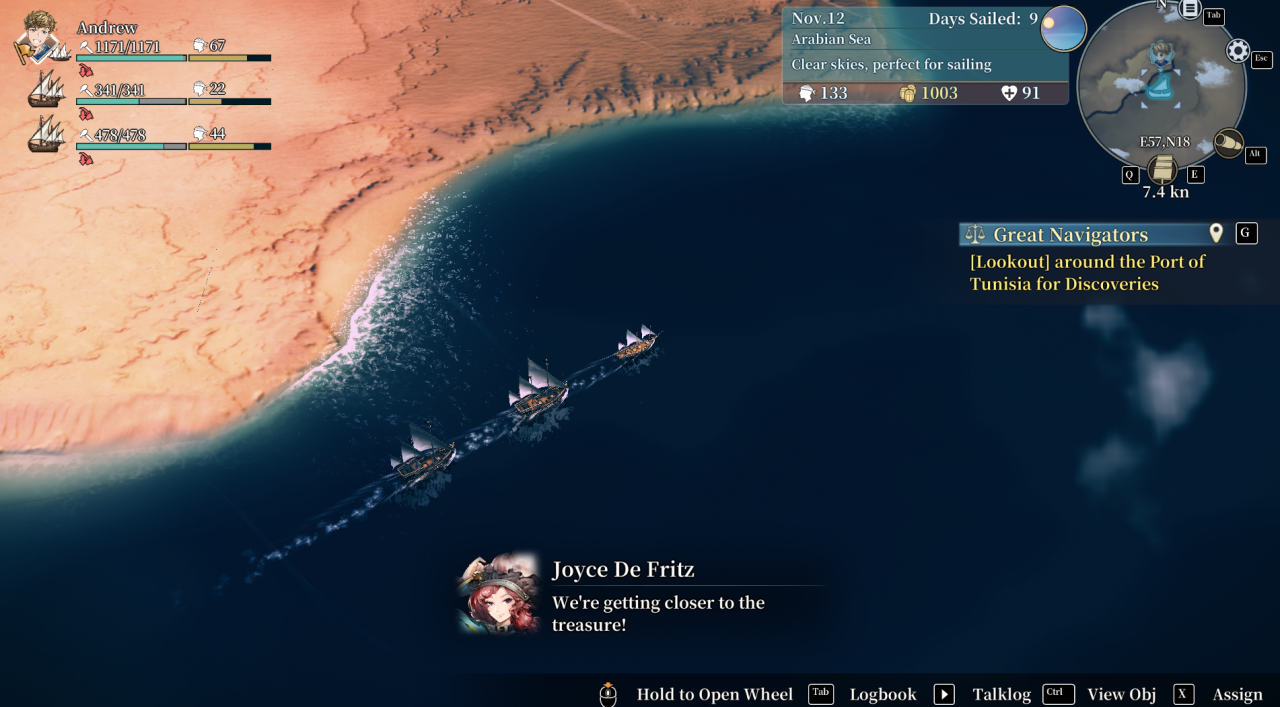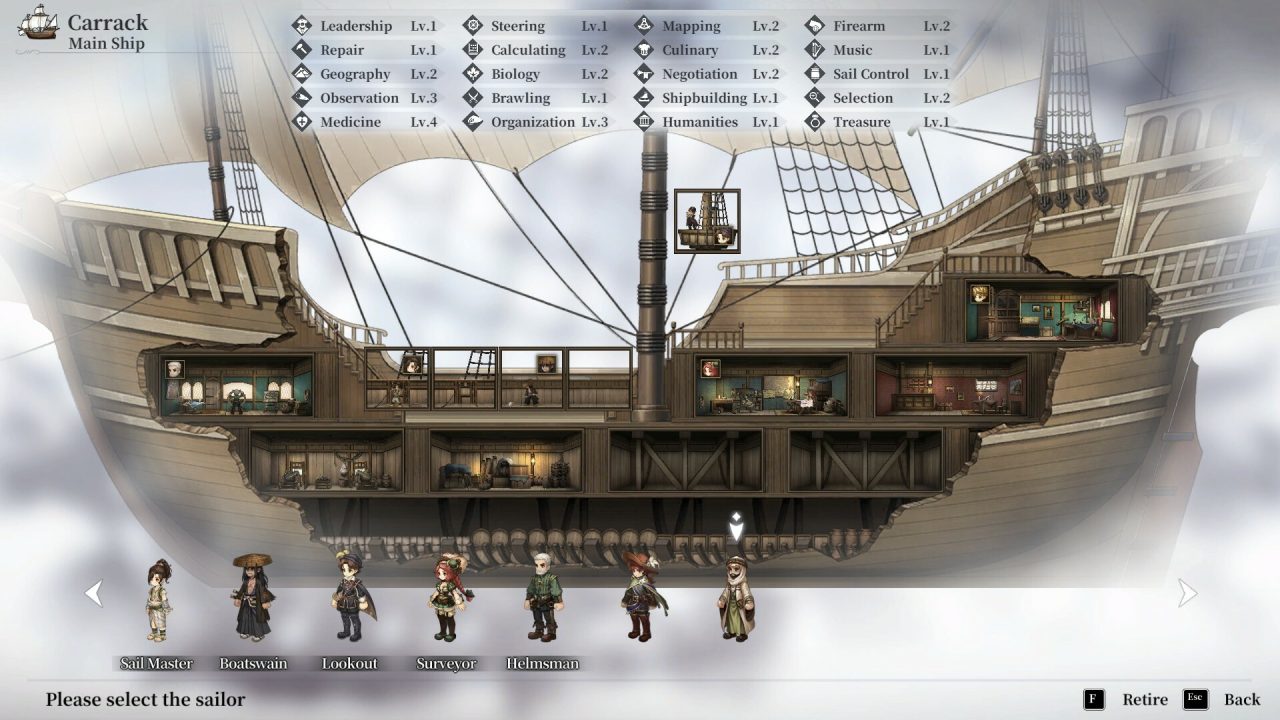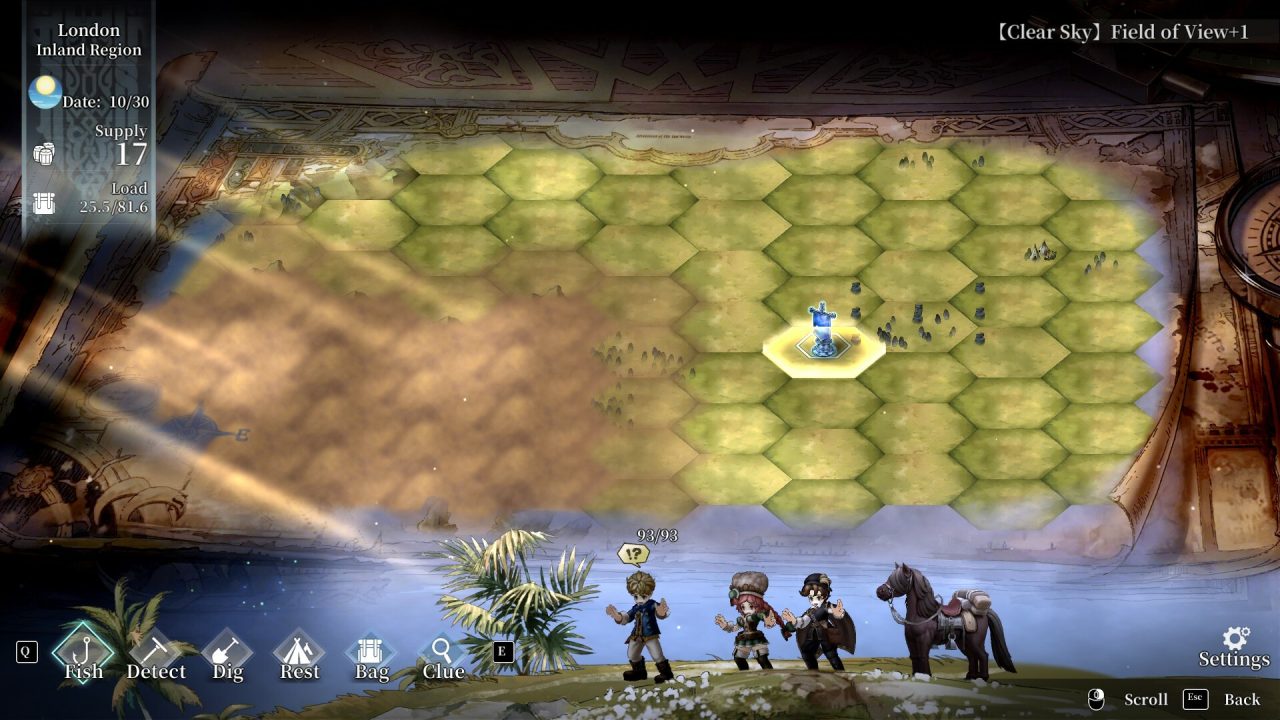Have you grown tired of the fantasy and science fiction-influenced worlds of your typical RPG? Do you crave a setting with the same potential for adventure, conflict, and discovery as a fantastical world but grounded in real-world history? Sailing Era seeks to scratch that itch by offering players the chance to set sail during the 17th century as captain of their own fleet. Offering a slew of mechanical improvements while missing some of the charm and personality of the games that inspired it, Sailing Era presents a worthwhile foray into the age of discovery.
Suppose you haven’t played a sailing RPG before. In that case, the basic mechanics are as follows: gameplay consisting of sailing from port to port with a real-time, day-night cycle and travel limited by supplies and the money on hand to pay the crew. When you’re not sailing, you are typically at a port where you can purchase goods to trade across the world, take on quests from local governance or trade guild, or head to the local tavern to schmooze the barmaid into giving you rumors and information. Quests range from delivering goods, discovering landmarks, establishing trade routes, or hunting down pirate bounties. In port, you can upgrade or purchase ships, hire sailors, and resupply for the next voyage. You can even upgrade ports with contribution points as you increase your influence. Increasing reputation at a port offers new bonuses and automatic traversal between destinations.

Virtually all of these activities will grant your fleet experience, which you can then invest in your characters as you see fit, tailoring their skills to the various roles in your fleet. There are multiple characters to choose from, each providing a separate starting point in the world and a unique skillset dedicated to a specific type of gameplay. I chose Andrew, a young Portuguese pilot who starts his journey in Lisbon, who has a high leadership stat and more easily gains favor with ports. Each character creates a different gameplay experience depending on player preference (Abdullah for combat, Yoshitaka for ship and fleet maintenance, Yun Mu for trade and discoveries).
Unfortunately, Sailing Era loses a bit of the charm and presentation that made similar games, such as Uncharted Waters: New Horizons, so memorable and fun. Features such as interactive ports for players to walk around and talk to NPCs in are strangely absent. Instead, Sailing Era opts for an entirely menu-based system accompanied by (admittedly impressive) anime-inspired 2D art. While the backdrops are lovingly crafted and change depending on the size and region of the port, something is missing. The game lacks a sense of immersion without interactive spaces outside of the open seas. After a few hours of play, ports started to run together in my mind, which presented a more significant problem. The main questline encourages venturing further and further from the starting point, making it difficult to remember where I’d been and how to get to the following location. Most quests only give vague cardinal directions, and the coastlines are dotted with tons of ports, so finding the next story point becomes an exercise in tedium as you sail into each port to find it’s not the one you need. A poor translation hampers the experience throughout, and it’s a shame the game doesn’t feature better guidance to prevent frustration.

The narrative and characters suffer compared to the games that inspired Sailing Era. While New Horizons featured a nice little introduction story for each character, introducing you to their personality, companions, and place in the world, Sailing Era’s attempts fall flat. The main characters come off as one-dimensional, and their companions fair even worse. I often found it unclear why the main quest was directing me to specific locations due to poor localization. Events would happen without build-up, never to be referenced again. The narrative comes off as disjointed, and the characters are distinguished more by their portrait art and gameplay-related skills than their personalities or motivations. Some of this may be due to the game’s open-ended design, with the designers unable to predict when the player might find a particular location, event, or character.
Perhaps the most disappointing aspect of the narrative is Sailing Era’s refusal to engage seriously with the time period. I can understand why the developers didn’t wish to delve into the serious subject matter surrounding imperialism and colonialism for what is otherwise a systems-based game. Unfortunately, the game addresses some of the darker or more contentious aspects of the time in a dismissive fashion that does a disservice to their historical importance. For example, when I stopped into one of the African ports, an African sailor remarked that European ships had recently kidnapped some members of his community to sell as slaves. He expresses dismay at this event… then walks off. These moments are the extent to which Sailing Era deals with the legacy of European colonialism and slavery. It’s a missed opportunity for the narrative depth the game needs. It makes me wonder why the developers included even oblique references to historically significant and culturally fraught topics if they had no interest in engaging with them.

While the narrative (and localization) leaves something to be desired, where Sailing Era truly shines is in its gameplay mechanics. The core gameplay loop revolves around accepting bounties or commissions from the government or guild in the various ports. Players then venture onto the open seas to defeat pirates, locate the required goods, and deliver them to port. You receive money, contribution points, and fleet experience when you return. You then invest these resources into your ships, ports, and characters. The beauty of this system lies in how self-directed it is. Want to be the most feared privateer in the world? Focus on combat and bounties. Privateers bring in fame and fortune while salvaging goods or recruiting ships. Want to avoid combat entirely? You can focus on trade and knowledge. Pay attention to the market rates of goods to buy low and sell high, earning additional currency through commerce guild commissions. Visit the various libraries scattered across the ports, using your knowledge to translate books and uncover hidden secrets, discoveries, and points of interest. Or wander the seas, fighting the pirates you come across and charting your own path and trade routes.
Each character has their own story path to follow, but you can do these quests at your own pace and explore at your leisure. No matter what activity you choose, you will earn valuable experience and currency that will improve the core strengths of your characters and the endurance and speed of your ships. The way each gameplay system ties in with the others while still allowing for a wide variety of playstyles is impressive, and it is easy to lose hours sailing around searching for the best deal or fighting pirates.
Speaking of fighting, combat is one of Sailing Era’s best assets. Both sailing and combat take place in real-time, with the speed and maneuverability of your ship determined by its stats, the skills of your crew, and the weather conditions. Ship combat mainly involves strafing and encircling your opponent to line up your cannons, then firing when enemies enter your range. I focused on beefing up my main ship for combat encounters while using the rest of my fleet as storage. Alternatively, you can assign characters to captain the other ships in your fleet, and the AI will control them in battle. You can also ram other ships to initiate boarding combat, in which your sailors will square off against the enemy in an automated battle sequence. Success or failure is determined entirely by stats and, depending on the outcome, can lead to a duel between ship captains. Duels have the player choose from a series of actions that play out simultaneously with the enemy in a system reminiscent of rock paper scissors, with a hint of strategy involved. Boarding battles and duels can be preferable to ship combat because they end quickly, thus avoiding damage to your ship and preserving enemy ships for the taking.

Another major differentiator between Sailing Era and other sailing RPGs is the ability to embark on land expeditions. You can send your characters on an expedition if you’ve accrued enough contribution points in a port with a scouting post. These last for as long as your supplies hold out. Your characters can find equipment and items and make discoveries using the proper tools. These expeditions occur on a hexagonal map, and you can watch a cheery little animation while they stroll along.
Though the beautiful anime-style art may entice fans of traditional JRPGs, the game has more in common with management sims. The meat of the game is in managing resources and building up your fleet, while the story and characters leave much to be desired. If intricate systems and poring over market predictions are your cup of tea, then climb up on deck. Otherwise, I recommend keeping your feet planted on solid ground.


